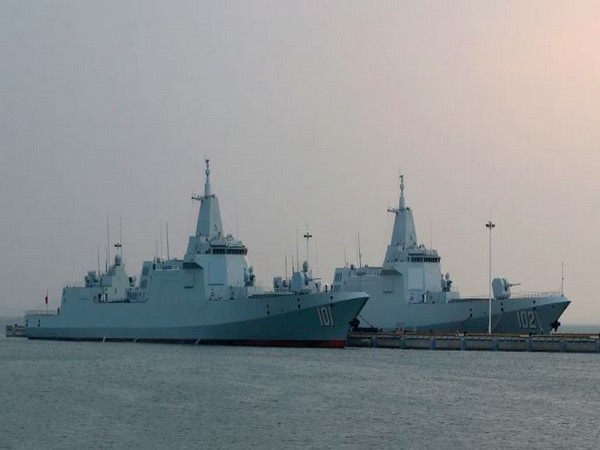Introduction
China Taiwan Strait tensions flared this week as Beijing sharply criticized the UK Royal Navy’s patrol through the disputed waterway. The British warship HMS Spey’s passage has reignited geopolitical disputes over the contested region while underlining Western military presence in Indo-Pacific waters.
China Condemns UK’s “Intentional Provocation”

China’s military labeled the UK’s actions as a deliberate act of “intentional provocation” that threatens regional stability. The Royal Navy’s HMS Spey transited the Taiwan Strait on Wednesday, marking the first such British naval passage in four years. According to Chinese military officials, the patrol distorted legal principles under international law and risked escalating cross-strait tensions.
“Such actions are intentional provocations that disrupt the situation and undermine peace and stability across the Taiwan Strait,” a Chinese navy spokesman stated. Chinese forces reportedly monitored HMS Spey throughout its passage.
UK’s Stance on Freedom of Navigation
The British Royal Navy emphasized that HMS Spey’s patrol was pre-planned and conducted in full compliance with international law, asserting the right to freedom of navigation. Taiwan’s government also supported the operation, calling it a contribution to safeguarding international norms in the Taiwan Strait.
UK Expands Indo-Pacific Naval Presence
The HMS Spey patrol coincides with the arrival of a substantial British carrier strike group, led by HMS Prince of Wales, into the Indo-Pacific for an extended deployment. British Prime Minister Keir Starmer highlighted the strategic significance of this deployment, describing it as one of the UK’s largest maritime operations in the region this century.

Approximately 4,000 UK military personnel will participate in the eight-month operation, engaging with over 30 countries including India, the US, Singapore, and Malaysia through joint exercises and strategic visits.
Rising Tensions in Taiwan Strait
The patrol adds to already heightened cross-strait tensions following the inauguration of Taiwan’s President Lai Ching-te, who maintains a tough stance against Beijing. President Lai recently characterized China as a “foreign hostile force,” leading to stricter policies targeting Chinese influence operations within Taiwan.
Meanwhile, China has maintained its aggressive posture, conducting frequent military drills, including live-fire exercises simulating attacks on Taiwan’s critical infrastructure.
China’s Dual Aircraft Carrier Drills Raise Concerns
As the UK warship entered the strait, China escalated its military posture by conducting unprecedented simultaneous drills with two of its aircraft carriers in the Pacific near Japan, alarming regional powers like Tokyo.
Global Implications of UK-China Naval Clash
This latest incident highlights broader Indo-Pacific security dynamics where Western nations continue to assert freedom of navigation rights in waters contested by Beijing. The Royal Navy’s increasing presence signals the UK’s commitment to upholding international maritime law and deterring coercive actions against Taiwan.
Beijing, however, views these maneuvers as direct challenges to its claims over Taiwan and surrounding waters, further fueling diplomatic tensions between China and Western powers.
Conclusion

The HMS Spey patrol through the Taiwan Strait underscores rising stakes in Indo-Pacific geopolitics. As China ramps up military drills and Western allies reinforce their naval presence, the fragile balance across the Taiwan Strait grows increasingly precarious. The world watches closely to see whether diplomatic dialogue or military posturing will define the region’s future stability.
Read more on Asia-Pacific military developments here.
For further authoritative coverage, refer to:
- BBC – China criticizes UK warship patrol
- The Morning News Informer – UK Carrier Group Indo-Pacific Deployment
- Reuters – China’s Pacific aircraft carrier drills raise alarms
Call to Action
Stay informed on global defense and geopolitical developments. Share your views: should the UK and its allies continue patrolling contested waters to assert international law? Comment below.









